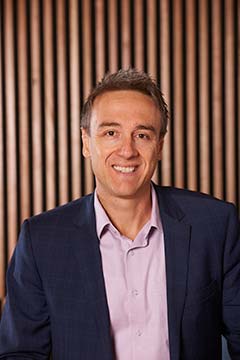My 7 top-tips to find a group-one media trainer
Your movie-star ambitions might’ve evaporated in your teens, but that doesn’t mean you don’t need media training.
Any person who works within an organisation which has a story to tell or a reputation to defend, understands the real potential in blitzing a media interview.
However, it’s an opportunity that can be won or lost in an instant- and that outcome will depend on your level of media preparedness.
Sure, you might be an expert on your topic.
But unless you’re a seasoned campaigner, it’s a safe bet you’ll find a news camera and strobe light in your face disconcerting.
No one walks into an interview expecting to be a deer in headlights. But it happens.
And that’s why you need media training.
So, in the spirit of goodwill, here are my 8 top tips to consider when scouting a top tier media trainer.
1. TV news is not like riding a bike.
We live in wild times, where news agendas are set by social media snippets (move over Twitter, What’s App is the dark horse in toppling Australian PM’s) and stories are pumped through a relentless 24 hour news cycle.
Now- more than ever- it is vital to have a media trainer who has VERY recent, VERY current, news room experience.
Newsrooms are a vastly different beast to what they once were.
Don’t let someone who hasn’t filed a story for 20 years ‘train you’ with their outdated theory or their best guess on what news is like now.
It’s not as simple as just hopping back on the bike.
There have been many changes in the cut and thrust of the newsroom….. Twitter launched in 2006 and changed the whole game.
Your media trainer needs to have felt the pressure of the 24-hour news cycle AND the NOW news cycle because… well, you’re about to.
2. Pick someone who has had their mug on TV… often.
This ties into our last point. Pick someone who was on-air talent.
Not behind the scenes in media: booking talent, doing Channel 9’s Facebook, the on-set sound recorder…. Forget it.
Someone who has actually had their face on TV.
Anyone else is teaching you from theory without having the skills themselves.
3. Check your trainer’s credentials on Google….
Any reputable TV news journalists will have news clips online. They should also have a website or a LinkedIn profile with links to their media training videos.
What do you think? If you like their style and on air presentation, these are the people you want teaching you.
4. Pay for one trainer, not two
Here are some quick points as to why one trainer is better than two.
Two can un-focus the session.
Two trainers can cost you a hidden premium- are you paying extra for an experienced journalist to be a sidekick?
Is this a sign the media trainer you’ve hired isn’t confident in their ability to be delivering what they promised?
5. Youth and dedication adds value
There are untold spoils of hiring a younger trainer with recent news experience- including the good chance they are likely to treat you like their only client.
Compare them to your more seasoned trainers. They’ve been around the traps for a long time, you’re their five thousandth client and they could just be going through the
motions.
Another tip- you want to have quick access to the Principal Consultant.
6. Your trainer should tailor your session- for free
Don’t settle for a session that isn’t customised to address the media goals of your team.
The end result should be industry, skills and issue-specific seminar that will quickly have you media ready by the end of the session. And this should be done at no extra cost.
Without this, you run the risk of yawning through a session going over things you already know, in a session that doesn’t plug any knowledge gaps.
Remember, if they are prepared to go the extra mile, your trainer likely to be genuinely invested in setting your team up for success.
7. Your spokesperson needs to be in front of the camera
Ask how many times your spokesperson will front the camera during training. If the answer isn’t five-plus times over a four hour session, you’re speaking to the wrong
person.
You want them to feel the nerves and pressure of being in an unexpected, real-life TV interview. Media skills can only be ingrained through practice.

Tony Nicholls
Founder and Director of Good Talent Media

Recent Comments